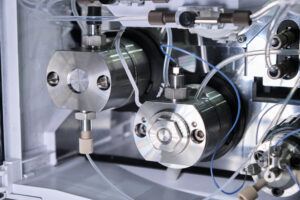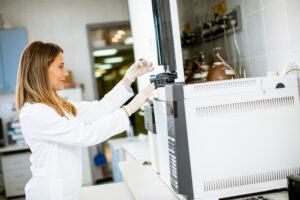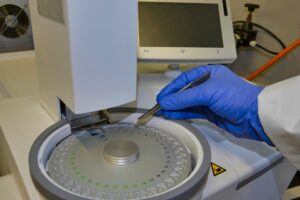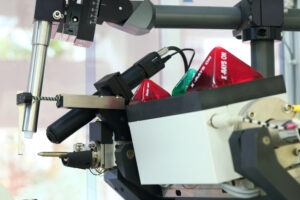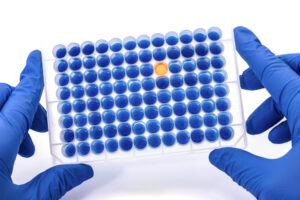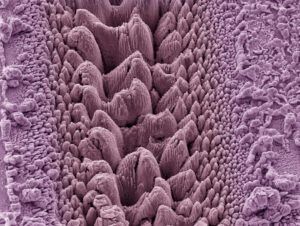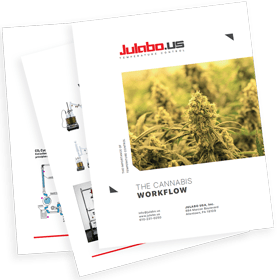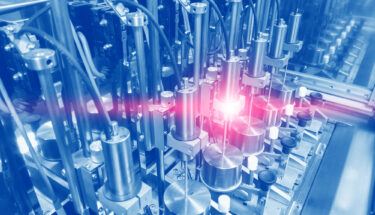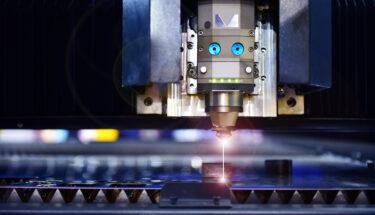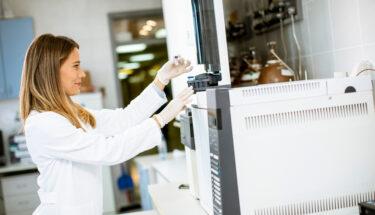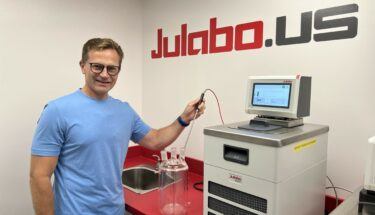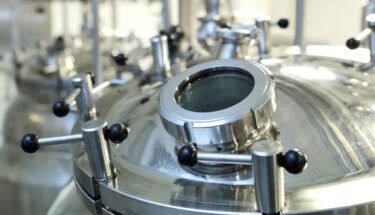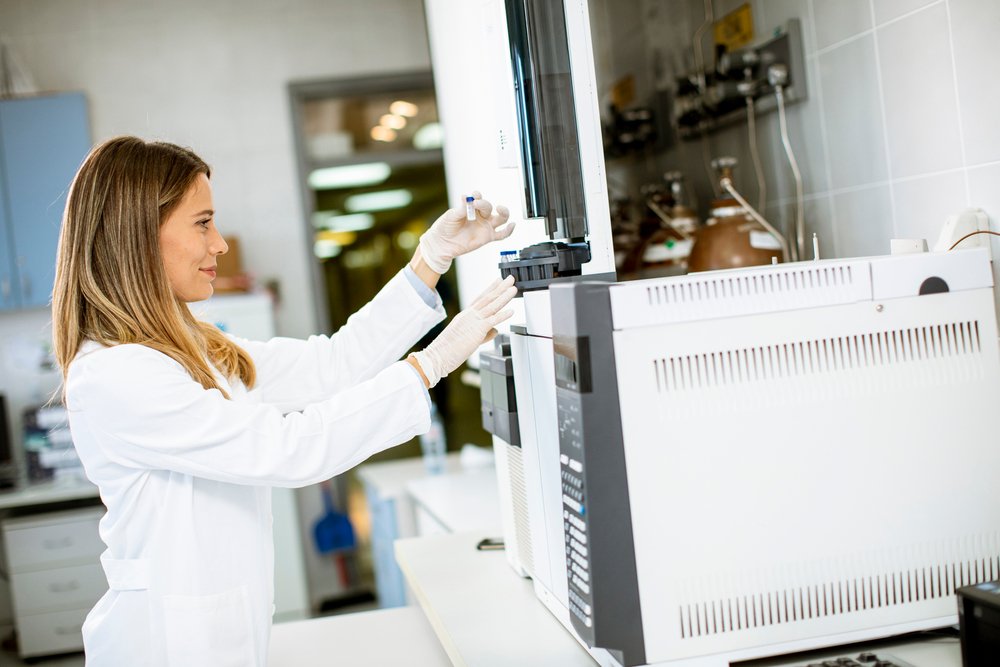
Precision Liquid Temperature Control with Circulators Across Diverse Analytical Techniques
Authored by: Dr. Dirk Frese, VP of Sales, Marketing & Service
Analytical instrumentation is a vast field with hundreds of techniques which are developing quickly for almost 200 years already as the need for safety and quality rises constantly in an ever-changing world.
The levels of sensitivity needed are doubling quickly and therefore the need for stability in the analytical method. Temperature, being one of the main physical characteristics, influences analytical techniques tremendously and thus precise temperature control is crucial for a successful method execution.
Personally, I have made use of most of the analytical methods mentioned below which are only a fraction of so many although important ones which are selected specifically for their needs in temperature control. Most experience I gained with chromatography, mass spectrometry, NMR, EPR, microplate readers and electron microscopy. All of them as fascinating, as one can only imagine.
There, and a myriad of other techniques, precision liquid temperature control with circulators plays a pivotal role in enhancing accuracy, reproducibility, and reliability. From liquid chromatography to laser photon analysis, from calorimeters to cryo electron microscopy, circulators with advanced temperature control capabilities ensure optimal performance and precise experimental conditions. In here, we delve into various applications of liquid temperature control with circulators in many analytical techniques, elucidating how they contribute to elevating precision in scientific analysis.
Understanding Liquid Temperature Control in Analytical Instrumentation
Liquid temperature control involves maintaining precise and uniform temperatures of liquid samples or mobile phases in analytical instruments such as chromatographs, spectrometers, and mass spectrometers. Whether analyzing complex mixtures, quantifying compounds, or elucidating molecular structures, controlling liquid temperatures is essential for optimizing instrument performance and obtaining accurate analytical results.
The Importance of Precision Liquid Temperature Control
In analytical instrumentation, precise liquid temperature control is crucial for several reasons.
Firstly, temperature variations can affect the behavior of analytes, leading to changes in retention times, spectral shifts, or ionization efficiencies. By maintaining constant liquid temperatures, variability can be minimized, and reproducibility ensured.
Secondly, temperature-sensitive analytical techniques, such as liquid chromatography and capillary electrophoresis, require precise temperature control to achieve optimal separation and resolution of analytes. Variation in liquid temperatures can alter the selectivity and efficiency of separation columns, impacting the accuracy and reliability of chromatographic data.
Thirdly, in mass spectrometry, liquid temperature control is essential for stabilizing ionization sources, such as electrospray ionization (ESI) or atmospheric pressure chemical ionization (APCI). Fluctuations in liquid temperatures can affect ionization efficiency and ion signal intensities, leading to variability in mass spectrometric measurements.
Applications of Liquid Temperature Control in Analytical Techniques
Liquid temperature control finds widespread application across various analytical techniques, including:
Liquid Chromatography (LC): In LC systems, precise temperature control of mobile phases is critical for optimizing chromatographic separations. Temperature-controlled solvent reservoirs and columns ensure consistent elution profiles and reproducible retention times, enhancing the accuracy of quantitative and qualitative analyses. Here, water baths, such as the JULABO PURA range are mainly used to stabilize the temperature of the solvents.
Gas Chromatography (GC): In GC systems, precise temperature control of injector and detector temperatures is essential for achieving reproducible chromatographic peak shapes and retention times. Stable liquid temperatures in sample introduction systems ensure accurate vaporization and transfer of analytes onto the chromatographic column. A circulator recommended for this task is the JULABO DYNEO DD-449F.
Mass Spectrometry (MS): In MS systems, temperature control is crucial for stabilizing ionization sources and enhancing ionization efficiency. Temperature-controlled liquid chromatography interfaces ensure consistent ionization conditions, improving the accuracy and sensitivity of mass spectrometric measurements. Probe cooling is another important task. A JULABO DYNEO or MAGIO MS-310F can do the job for you. For cooling an ICP-MS with a chiller, the JULABO FL2503 with 2.5kW of cooling capacity is a good option.
NMR (Nuclear Magnetic Resonance) spectroscopy, a powerful analytical technique for studying molecular structures and interactions, relies on precise liquid temperature control for optimal spectral resolution and accuracy. Circulators integrated into NMR spectrometers maintain stable and uniform temperatures of NMR sample probes or sample chambers, minimizing temperature-dependent shifts and line broadening effects. It also enhances signal-to-noise ratios and spectral quality. Various JULABO circulators are employed for sample preparation or to cool the apparatus itself.
EPR/ESR Spectroscopy: Electron paramagnetic resonance (EPR) spectroscopy or electron spin resonance (ESR) is detecting atoms and molecules containing unpaired electrons (paramagnetic). It is very sensitive (up to 1000x more than NMR) and specific and allows non-invasive or destructive analyses. It helps in the study of free radicals, structures and dynamics of processes. Applications can be found in medicine, pharmacology, food testing, material testing, dating of biological samples and many more. Today benchtop EPR spectrometers are most versatile for most analyses and its use will be on the rise even more in the near future. For this application liquid cooling by thermoelectric means is ideal. JULABO offers their Peltier TE400 circulator for this application.
Capillary Electrophoresis (CE): In CE systems, precise temperature control of electrolyte solutions is essential for optimizing separation efficiency and resolution. Stable liquid temperatures in capillary columns ensure reproducible electrophoretic mobilities of analytes, enabling accurate quantification and identification. In this application JULABO CORIO or DYNEO DD-200F units can be used.
Laser Photon Analysis: In laser photon analysis techniques such as laser-induced breakdown spectroscopy (LIBS) or laser-induced fluorescence (LIF), precision liquid temperature control with circulators as the JULABO DYNEO DD-450F or PRESTO A85 ensures stable and controlled environments for laser interactions with samples. Consistent liquid temperatures mitigate thermal effects and background noise, enhancing the accuracy and sensitivity of laser photon analysis measurements.
Calorimeters, used for measuring heat changes in chemical reactions or biological processes, rely on precise temperature control for accurate calorimetric data. Circulators maintain constant liquid temperatures in calorimetric cells, enabling researchers to obtain precise heat flow measurements and determine enthalpy changes with high accuracy. JULABO circulators as the DYNEO DD-449F or CORIO CP-450F are appropriate for these tasks.
DSF Differential Scanning Fluorescence, a technique used for studying protein stability and ligand interactions, requires precise temperature control to monitor protein unfolding and fluorescence changes. Circulators with rapid temperature ramp rates and tight temperature tolerances facilitate precise control of liquid temperatures during DSF experiments, ensuring reliable analysis of protein thermodynamics. Recommended products are the JULABO CORIO, DYNEO or MAGIO circulators with a 450F cooling bath.
Melting point analyzers, used for determining the melting points of solid substances, require accurate temperature control to achieve reproducible melting point determinations. Circulators maintain uniform liquid temperatures in sample cells or melting point apparatus, enabling researchers to obtain precise melting point values and assess sample purity and identity. JULABO’s MAGIO MS-800F, compact chiller CF41 or Presto A85 can be a good match for these applications.
Thermal conductivity analyzers, employed for measuring thermal conductivity of materials, benefit from precise liquid temperature control to minimize temperature gradients and ensure accurate thermal conductivity measurements. Circulators provide stable temperatures in thermal conductivity cells, optimizing accuracy and precision. The JULABO CORIO CD-BC4, CF30 or DYNEO DD-310F can be utilized effectively, depending on the specifics of the set-up.
Thermogravimetric analyzers (TGA), utilized for studying weight changes in materials as a function of temperature, rely on precise temperature control to accurately characterize decomposition, oxidation, or phase transitions. Circulators maintain consistent temperatures in TGA sample cells, enabling precise measurement of weight loss or gain over temperature ranges. The DYNEO DD-450F up to the PRESTO W85 by JULABO are a good match depending on the temperature range desired.
X-ray diffractometers (XRD), used for analyzing crystal structures and phase identification of materials, require stable and controlled temperature environments for accurate diffraction patterns. Circulators ensure uniform liquid temperatures in XRD sample holders, minimizing thermal effects and enhancing the quality of XRD data. JULABO DYNEO DD-310F or MAGIO MS-800F thermostatic bathes are suitable for this application.
Microplate readers, employed for biochemical assays and cellular analyses, benefit from precise temperature control for kinetic measurements and fluorescence detection. Circulators integrated into microplate reader systems maintain constant liquid temperatures in microplates, enabling accurate and reproducible measurements of absorbance, fluorescence, or luminescence. Again, the JULABO MAGIO DD-310F or MAGIO MX-BC12 can be applied here.
Imaging microplates used in high-content screening and cellular imaging assays require precise temperature control to maintain cell viability and fluorescent probe stability during imaging experiments. Circulators with temperature-controlled stages or holders ensure stable liquid temperatures in imaging microplates, optimizing imaging quality and data reliability.
Electron microscopy techniques, including scanning electron microscopy (SEM) and transmission electron microscopy (TEM), as well as cryo electron microscopy (Cryo EM), rely on precise liquid temperature control for sample preparation and imaging. Circulators maintain stable liquid temperatures during sample fixation, embedding, and imaging processes, ensuring high-resolution and artifact-free microscopy images. Water baths of the JULABO PURA range are used to temper samples and powerful chillers as the PRESTO A85 up to the PRESTO W92 can be used for deep temperature freezing.
In conclusion, precision liquid temperature control with circulators plays a pivotal role in advancing precision and reliability across diverse analytical techniques, from spectroscopy and calorimetry to microscopy and thermal analysis. By providing stable and uniform liquid temperatures, circulators contribute to minimizing experimental variability, optimizing analytical performance, and ensuring reproducibility in scientific analyses across various research and industry domains.
The specific circulators mentioned as recommendations are based on scientific publications and therefore just examples out of a wider range of possible instruments to be chosen from.
If you have any questions or would like additional information, you can contact Mark Diener, Sr. Product Manager during his office hours Mondays and Fridays from 1-3pm ET, [email protected], 484-225-5404, or schedule a free consult.

